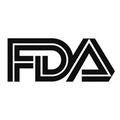FDA Grants Accelerated Approval to Umbralisib in Relapsed/Refractory MZL and FL
The FDA has granted accelerated approval to umbralisib for the treatment of patients with relapsed or refractory marginal zone lymphoma who have received at least 1 prior regimen with anti-CD20 therapy, and for patients with follicular lymphoma who have received at least 2 prior systemic therapies.

The FDA has granted accelerated approval to umbralisib (formerly TGR-1202; ) for the treatment of patients with relapsed or refractory marginal zone lymphoma (MZL) who have received at least 1 prior regimen with anti-CD20 therapy, and for patients with relapsed/refractory follicular lymphoma (FL) who have received at least 3 prior systemic therapies.
Umbralisib, a dual inhibitor of PI3K-delta and CK1-epsilon, was approved 1 month ahead of the Prescription Drug User Fee Act target action of February 15, 2021, and the New Drug Application was reviewed without an advisory committee meeting.
“Despite treatment advances, MZL and FL remain incurable diseases with limited treatment options for patients who relapse after prior therapy and no defined standard of care. With the approval of umbralisib we now have a targeted, oral, once-daily option, offering a needed treatment alternative for patients,” said Nathan H. Fowler, MD, professor of medicine at The University of Texas MD Anderson Cancer Center, and the UNITY-NHL study chair of the MZL and FL cohorts, in a statement.
The NDA for umbralisib was supported by findings from the MZL and FL cohorts of the phase 2b randomized UNITY-NHL trial (NCT02793583), which evaluated umbralisib in combination with ublituximab with or without bendamustine as treatment of patients with non-Hodgkin lymphoma (NHL).
In the 3-arm study, patients received either the combination umbralisib and ublituximab, umbralisib monotherapy, or umbralisib/ublituximab with bendamustine. Umbralisib was administered orally at 800 mg once daily in 28-day treatment cycles. Treatment was continued until disease progression or unacceptable toxicity.
The primary end point of the study was the objective response rate (ORR) per independent review committee assessment. The secondary end points were duration of response (DOR), progression-free survival (PFS), time to response (TTR), and safety.
Enrollment of patients with MZL, FL, and other NHLs was allowed if they met the eligibility requirements, which for the MZL cohort was having relapsed/refractory disease with ≥1 prior line of treatment including an anti-CD20 agent. For the FL cohort, patients were required to have at least 2 prior lines of therapy, inclusive of an anti-CD20 and an alkylating agent.
According to data presented during the 2020 American Society of Hematology (ASH) Annual Meeting, the median follow-up in the MZL cohort was 27.8 months. Umbralisib achieved an ORR of 49.3% (95% CI, 37.0%-61.6%) among patients with MZL, which included a complete response (CR) rate of 15.9%, and a disease control rate of 82.6% when the percentage of CRs, partial responses, and cases of stable disease were calculated. The median TTR in this cohort was 2.8 months (95% CI, 2.7-2.9).
The median PFS was not reached in the MZL group (95% CI, 12.1 months to not evaluable [NE]), but there was an estimated 12-month PFS rate of 64.2%. The median DOR was also not reached (95% CI, 10.3 months to NE), Notably, none of the patients with MZL who achieved a CR experienced progression as of data cutoff.
In the FL cohort, the median follow-up was 27.5 months. Treatment with umbralisib led to an ORR of 45.3% (95% CI, 36.1%-54.8%). Responses included CRs in 5.1% of patients, and the DCR was 79.5%. Patients with FL had a median TTR of 4.6 months (95% CI, 3.0-5.6).
The median PFS among patients with FL was 10.6 months (95% CI, 7.2-13.7) with an estimated 12-month PFS rate of 45.9%. The median DOR was 11.1 months (95% CI, 8.3-15.6).
Safety data for the entire study population showed that the most common grade 3 AEs were 1.5%), diarrhea (10.1%), and increased alanine and aspartate aminotransferase (7.2%). Investigators also observed pneumonitis of any grade in 1.4% of the population and grade 3 pneumonitis in 1.0% of the population. The other AE of interest was colitis, which at any grade, was seen in 1.4% of patients and at grade 3 was seen in 1.0% of patients.
Serious AEs occurred in the study in 28.1% of patients, 24.6% of which were grade 3 in severity.
Overall, 14.9% of patients discontinued umbralisib due to the emergence of treatment-related AEs. In addition, 9.6% experienced dose reductions due to treatment-related AEs. As of data cutoff, 26 patients with MZL and 27 with FLL were still receiving umbralisib.
The UNITY-NHL study results led investigators to determine that the agent is tolerable with a favorable benefit-risk profile in patients with MZL and FL, as well as other NHLs.
Continued approval of umbralisib for these indications may depend upon verification and description of clinical benefit in a confirmatory study.
References:
1. TG Therapeutics Announces FDA Accelerated Approval of UKONIQ™ (umbralisib). News release. TG Therapeutics. February 5, 2021. Accessed February 5. 2021. https://bit.ly/3oWtcay
2. Zinzani P, Samaniego F, Jurczak W, et al. Umbralisib, the once daily dual inhibitor of pi3kδ and casein kinase-1ε demonstrates clinical activity in patients with relapsed or refractory indolent non-hodgkin lymphoma: results from the phase 2 global UNITY-NHL trial. Blood. 2020; 136 (suppl 1): 34-35. doi: 10.1182/blood-2020-134851
Examining the Non-Hodgkin Lymphoma Treatment Paradigm
July 15th 2022In season 3, episode 6 of Targeted Talks, Yazan Samhouri, MD, discusses the exciting new agents for the treatment of non-Hodgkin lymphoma, the clinical trials that support their use, and hopes for the future of treatment.
Listen
Later-Line CD19 and Bispecific Therapies Considered After CAR T
October 1st 2024During a Case-Based Roundtable® event, Christopher Maisel, MD, discussed third- and fourth-line therapy and barriers to bispecific therapy use in diffuse large B-cell lymphoma in the second article of a 2-part series.
Read More